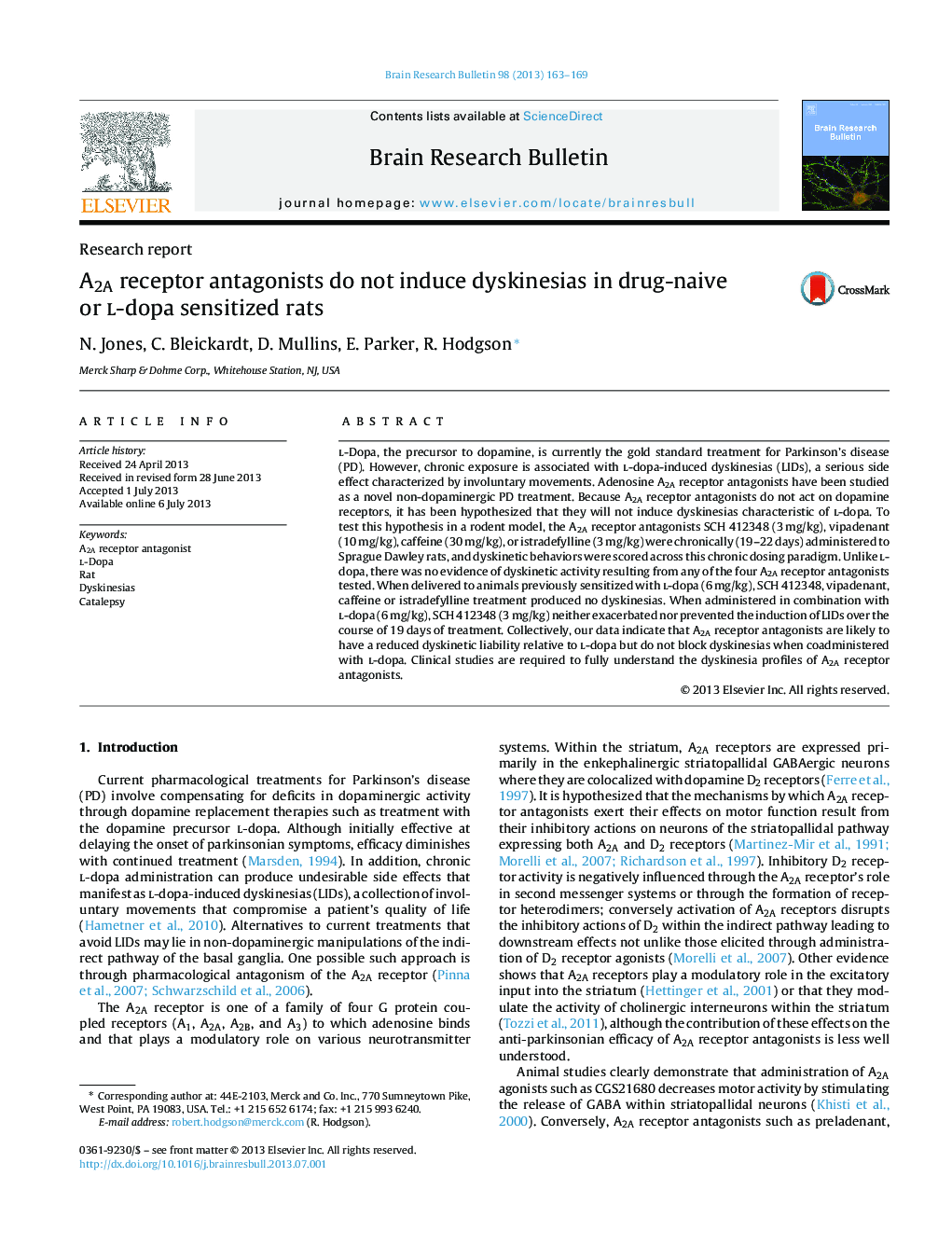| Article ID | Journal | Published Year | Pages | File Type |
|---|---|---|---|---|
| 6261847 | Brain Research Bulletin | 2013 | 7 Pages |
â¢Chronic A2A receptor antagonist treatment does not induce dyskinesias in naïve rats.â¢A2A antagonists do not induce dyskinesias in rats previously sensitized to l-dopa.â¢A2A antagonists did not prevent l-dopa sensitization in rats.
l-Dopa, the precursor to dopamine, is currently the gold standard treatment for Parkinson's disease (PD). However, chronic exposure is associated with l-dopa-induced dyskinesias (LIDs), a serious side effect characterized by involuntary movements. Adenosine A2A receptor antagonists have been studied as a novel non-dopaminergic PD treatment. Because A2A receptor antagonists do not act on dopamine receptors, it has been hypothesized that they will not induce dyskinesias characteristic of l-dopa. To test this hypothesis in a rodent model, the A2A receptor antagonists SCH 412348 (3Â mg/kg), vipadenant (10Â mg/kg), caffeine (30Â mg/kg), or istradefylline (3Â mg/kg) were chronically (19-22 days) administered to Sprague Dawley rats, and dyskinetic behaviors were scored across this chronic dosing paradigm. Unlike l-dopa, there was no evidence of dyskinetic activity resulting from any of the four A2A receptor antagonists tested. When delivered to animals previously sensitized with l-dopa (6Â mg/kg), SCH 412348, vipadenant, caffeine or istradefylline treatment produced no dyskinesias. When administered in combination with l-dopa (6Â mg/kg), SCH 412348 (3Â mg/kg) neither exacerbated nor prevented the induction of LIDs over the course of 19 days of treatment. Collectively, our data indicate that A2A receptor antagonists are likely to have a reduced dyskinetic liability relative to l-dopa but do not block dyskinesias when coadministered with l-dopa. Clinical studies are required to fully understand the dyskinesia profiles of A2A receptor antagonists.
